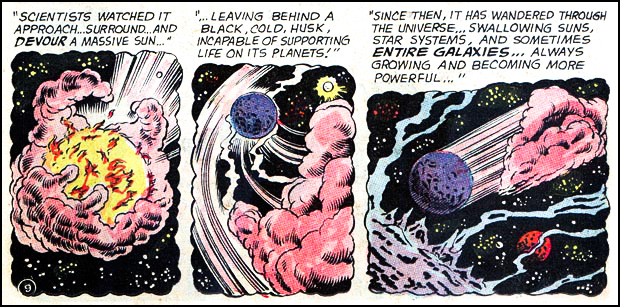This is unbelievable. Every single person aboard this Japan Airlines jet survived the crash shown in this video.
(The plane it crashed into was not so lucky. Five out of six coast guard crew members were killed.)
Cats, charts, and politics

Commercial construction dropped in November at an annualized rate of -2.9%. This is the first time it's declined in the past year and a half—and this is despite the continuing tailwinds of the Infrastructure Act and the CHIPS Act. Perhaps the emptying of downtown office buildings is finally taking its toll?
The latest from the Ivy League:
Harvard President Claudine Gay will resign Tuesday afternoon, bringing an end to the shortest presidency in the University's history, according to a person with knowledge of the decision... Gay’s resignation — just six months and two days into the presidency — comes amid growing allegations of plagiarism and lasting doubts over her ability to respond to antisemitism on campus after her disastrous congressional testimony Dec. 5.
I have to admit that despite my misgivings about plagiarism scandals in general, Gay does seem to have done a lot of it. Yesterday's latest batch of discoveries still don't amount to more than sentences here and there, but it's begun to pile up into a lot of sentences.
I will also admit that it distresses me for the odious Rep. Elise Stefanik to win another scalp. She doesn't deserve any rewards for her grotesque behavior when she badgered Gay and two other university presidents about genocide on December 5.
I also hate to see Bill Ackman's resentment-fueled jihad against Gay bear fruit.
And of course there's right-wing warrior Christopher Rufo, who openly engineered the plagiarism charges for political purposes. He wins too, and that kills me.
In other words, every single sentiment I have, tribal and otherwise, makes me want Gay to keep her job. But the plagiarism has turned into bad stuff, and the pressure on other fronts has perhaps become unbearable. I can't deny that this might be for the best.
The Wall Street Journal says things are looking up:
Last year’s widespread skepticism proved to be misplaced.... Now, with the S&P 500 within 0.6% of a record high, the crowd is much more optimistic.
I know it's traditional to report stock market indexes in nominal terms, but that doesn't make it right. It's just a scam that allows new "records" to be announced routinely so that things always look more bullish than they really are. Here's the S&P 500 over the past three years in real terms:
 The market did fine this year, but it's not within 0.6% of a record high. It's not even close. It's still got 400 points to go.
The market did fine this year, but it's not within 0.6% of a record high. It's not even close. It's still got 400 points to go.
I've forgotten to follow up on this recently, so here is K-12 public education employment through November:
 November employment was the highest in the past decade with the exception (barely) of 2019—even though school enrollment has dropped about 6%. There's no apparent teacher shortage.
November employment was the highest in the past decade with the exception (barely) of 2019—even though school enrollment has dropped about 6%. There's no apparent teacher shortage.
This comes with the usual caveats. It includes all ed employees, not just teachers.¹ It's national, so it doesn't imply that there are no shortages in specific areas. And it says nothing about the quality of teachers (The percentage of teachers with less than three years experience has been generally declining over the past 20 years. At the same time, the percentage entering teaching through nontraditional routes has been increasing. So....)
¹Teachers fairly steadily account for about half of all ed employees, but this data is annual and lags by a couple of years. It probably hasn't changed recently, but there's no way to say for sure.
December 2023 was the warmest December on record for the Contiguous U.S. by a wide margin using Prism Climate Group data. It was 0.67°F (0.37°C) warmer than December 2021. ???????????? pic.twitter.com/nhRL9j0O4G
— Brian Brettschneider (@Climatologist49) January 1, 2024
These are mostly years in which a surprising number of important things happened. For the most part, wars are excluded. Go ahead and argue with my choices in comments.
1687: Isaac Newton invents physics.
1776: American Revolution, Wealth of Nations, first commercial Watt steam engine, Decline and Fall of the Roman Empire.
1789: French Revolution, first American president, Bill of Rights proposed.
1831: HMS Beagle, Faraday's dynamo, Garrison's Liberator, Hunchback of Notre Dame.
1848: Communist Manifesto, gold discovered in California, Seneca Falls, Revolutions of 1848.
1859: Suez canal, Origin of Species, first American oil well, Tale of Two Cities, Riemann Hypothesis, On Liberty.
1900: Quantum mechanics, Interpretation of Dreams, ABO blood typing system, Wizard of Oz, premiere of Tosca.
1905: Albert Einstein's annus mirabilis.
1928: Penicillin, Coming of Age in Samoa, River Rouge plant completed, Passion of Joan of Arc, Mickey Mouse, OED, first regular TV broadcast, All Quiet on the Western Front, sliced bread (against which all future inventions would be compared).
1939: Gone with the Wind, The Wizard of Oz, Stagecoach, Mr. Smith Goes to Washington, Goodbye Mr. Chips, The Rules of the Game, nuclear fission, Batman, World War II, first televised baseball game, first published stories by Isaac Asimov and Robert Heinlein.
1958: First credit card, DARPA, integrated circuit, NASA, USS Nautilus, laser, first communications satellite, first transatlantic jet service.
1969: First human on the moon, Boeing 747, Stonewall, Woodstock, Miracle Mets, ARPANET, Unix, Abbey Road.
Ha ha, the headline is just clickbait. Most of these aren't really extinction level events, they're just really bad. And the odds of any of them happening in 2024 are minuscule. But still possible!

Here are a few miscellaneous predictions for the new year: